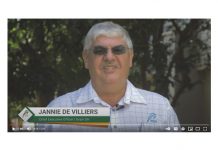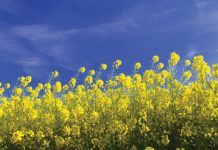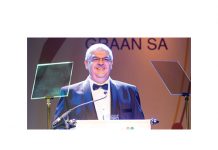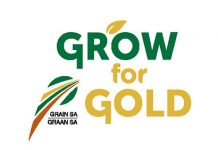South Africa is facing many challenges on a number of different fronts – not least of all, successful transformation in the agricultural sector. Change is often uncomfortable and it can be slow. As development is a process, this all takes time – hence the programme of Grain SA that is working towards transformation in the sector, optimal use of resources, increased and improved land use and rural development.
Although the programme has been running for many years now, there is still a lot of work remaining. The concept of a commercial producer is subject to interpretation, and so our target is to achieve commercial yields on the arable land, as if a commercial producer was farming on the land.
Funding
In past years, the funding for the programme came from the grain and oilseeds trusts, namely the Maize Trust, the Winter Cereal Trust, the Oil and Protein Seeds Trust and the Sorghum Trust. For years, they have been committed to the vision of a united and prosperous sector. Our entire programme owes its existence to the generous funding by these trusts. Times change, and again, although the change is not always comfortable, it is necessary for progress – we cannot continue to do the same thing while expecting a different result.
Challenges
Through the years, we have discovered the many challenges facing developing farmers. These include knowledge, experience and skills as well as access to modern inputs, mechanisation and money. In some deep rural areas, the access to markets can also be challenging once the levels of production increase beyond the needs of the immediate community.
Interestingly enough, we have not found that land is a limiting factor – people have access to a lot of land that they cannot use for the reasons mentioned above. Another factor that adds complexity is the various forms of land tenure that we have in South Africa – freehold (ownership and hired land) versus the intricate communal land tenure system that is difficult to comprehend if you are not part of that traditional system.
The developing sector is further complicated by the differences between farmers. Some live on communal land – they grow their own food and if they produce too much to eat, they will sell a little. There are other, slightly larger farmers, also mostly in the communal areas who are moving towards production on a larger scale. These farmers supply not only the local markets but also the more commercial markets.
At the other end of the picture are those who are on large farms and who are truly commercial (or planning to be fully commercial). The larger the farmer, the more challenges there are to overcome – higher technology, greater need for mechanisation and larger budgets for the production inputs.
The variance in the farmers has required that they be dealt with differently – through study groups, through individual service on the farms, training courses on different subjects at different levels and access to information in an appropriate language of choice.
 Offices
Offices
Servicing farmers in the rural areas requires funding. We have a system whereby there are development offices in the areas where we serve the farmers – currently we have full offices in Paarl, Lichtenburg, Ladybrand, Nelspruit, Dundee, Kokstad and Mthatha and a virtual office in Maclear. From these offices we are in contact with more than 14 000 farmers at all the different levels. Needless to say, to run these offices, as well as the office in Bloemfontein (from where the programme is managed), costs a lot of money.
Support
Over the past three years, we have been very blessed by the support that we have received, not only from the Maize Trust, the Winter Cereal Trust and the Oil and Protein Seeds Trust (working through the Grain Farmer Development Association [GFADA]), but also from companies in the broader value chain. Monsanto (now Bayer) has been very generous in their funding – helping us to keep three full offices operational. We are also very grateful to Afgri, Corteva (Pioneer and Pannar), Grain SA, Omnia and Silostrat, whose contributions have made it possible for the full programme to continue.
The AgriSETA has always contributed funding towards our training courses as well as the schools programme – in fact, they were so satisfied with our performance that we won their competition for the best governed project. We are pleased to get this recognition as it shows that apart from doing good work in the field, our governance and financial management are reliable, accountable and transparent.
Apart from the direct funding from the above-mentioned donors, we have also been involved in other projects – the Jobs Fund Project (called From Subsistence to Abundance), a project with the Department of Science and Technology which has included small-scale mechanisation for the farmers in the Jobs Fund Project, training on basic nutrition, training on the cultivation of dry beans as well as the development of and training on nixtamalization.
Nixtamalization is a process for the preparation of maize (or other grains) in which the maize is soaked and cooked in an alkaline solution (lime water), washed and hulled (the outer covering of the maize is softened in the process and it can be washed off). The benefits of nixtamalization are as follows:
- The phytic acid is reduced in the maize (which prevents humans from absorbing all the nutrition available in the maize).
- The mycotoxins are removed (cancer causing toxins).
- The nutritional value is increased (making Niacin [Vitamin B3] and the amino acid Tryptophan available so as to prevent malnourishment – particularly pellagra).
- More calcium, iron, copper and zinc become available.
- The starch granules are easier to digest.
- The maize is more easily ground.
- The flavour is improved.
- The masa (maize after the process) can form a dough.
The people who have been exposed to this process are very excited and they have adopted it into their diets – one of the greatest direct advantages is that the maize is sufficiently soft to allow the making of mealie bread all year round.
 Partnership
Partnership
In addition to the other partnerships, we have embarked on a partnership with the Department of Agriculture and Rural Development (DRDAR) in the Eastern Cape where we are developing, training, equipping and using small black contractors to assist their fellow farmers in the deep rural areas.
This project has been very rewarding, and while travelling through the Eastern Cape, you can ‘spot the plot’ where good work has been done (a combination of the DRDAR and the Jobs Fund). The sustainability of commercial production has been a challenge in the past and we believe that through the development of small local contractors, we will overcome at least one of the challenges.
We have been fortunate this year to collaborate with AB InBev for the funding of some farmers. AB InBev is developing farmers who will produce non-GMO maize for its breweries. In order to build and capacitate farmers, we have managed production loans for some farmers so that they get the opportunity to ‘practice’ their farming on various crops before they become producers of the non-GMO maize.
The project has faced quite a few challenges this year because of the drought, but we believe that it will continue. Through this funding, the farmers are able to use their previously unused land.
Commitment
The commitment of the team members (more than 100 persons) as well as the commitment of the donors are enabling progress towards improved and sustainable land use. Although we continue to thank our donors, we again would like to give recognition to the contribution made by all the partners, and also to the team that is working in the fields with the farmers.
‘We cannot seek achievement for ourselves and forget about progress and prosperity for our community…Our ambitions must be broad enough to include the aspirations and needs of others, for their sakes and for our own.’ – Cesar Chavez

















